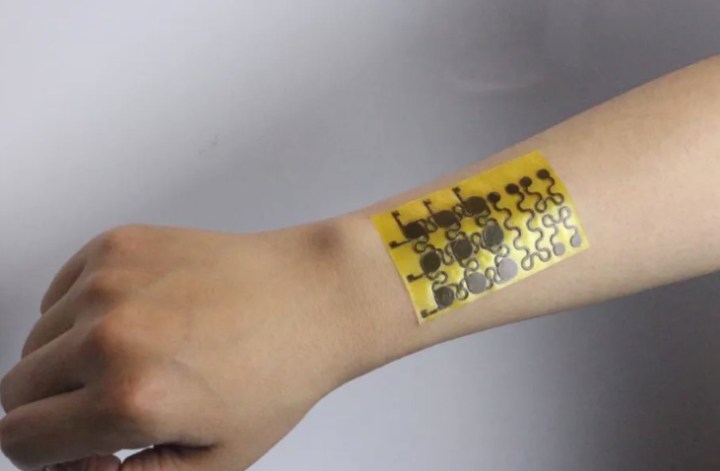
Our bionic future may not be so far away after all. Researchers have recently created an electronic skin, or e-skin, that is self-healing and totally recyclable. As described in the journal Science Advances, a team of scientists have managed to develop a “malleable electronic skin enabled by dynamic covalent thermoset nanocomposite.” But all you really need to understand is that this thin film is able to fix itself when it’s torn or broken, which means that the electronics, prosthetics, or smart textiles of the future will be able to put themselves back together when we inadvertently mess them up.
The team currently sees potential applications across a wide range of industries, and its eco-friendly aspects should make it quite popular with manufacturers.
“This particular device … won’t produce any waste,” said study co-author Jianliang Xiao, an assistant professor of mechanical engineering at University of Colorado Boulder. “We want to make electronics to be environmentally friendly.”
Before you get too excited by the prospect of this skin in place of say, your own skin, let us warn you that the e-skin, while impressive, isn’t quite there yet. While it’s soft, it’s not quite as flexible or stretchable as human skin. And as it stands, the material isn’t easily reproducible. That said, Xiao and his team say that they’re working on a better scaling solution so that it’ll not only be easier to manufacture, but also easier to place in prosthetics, robotics, or just about anything else.
“We are facing pollution issues every day,” Xiao noted. “It’s important to preserve our environment and make sure that nature can be very safe for ourselves and for our kids.”


